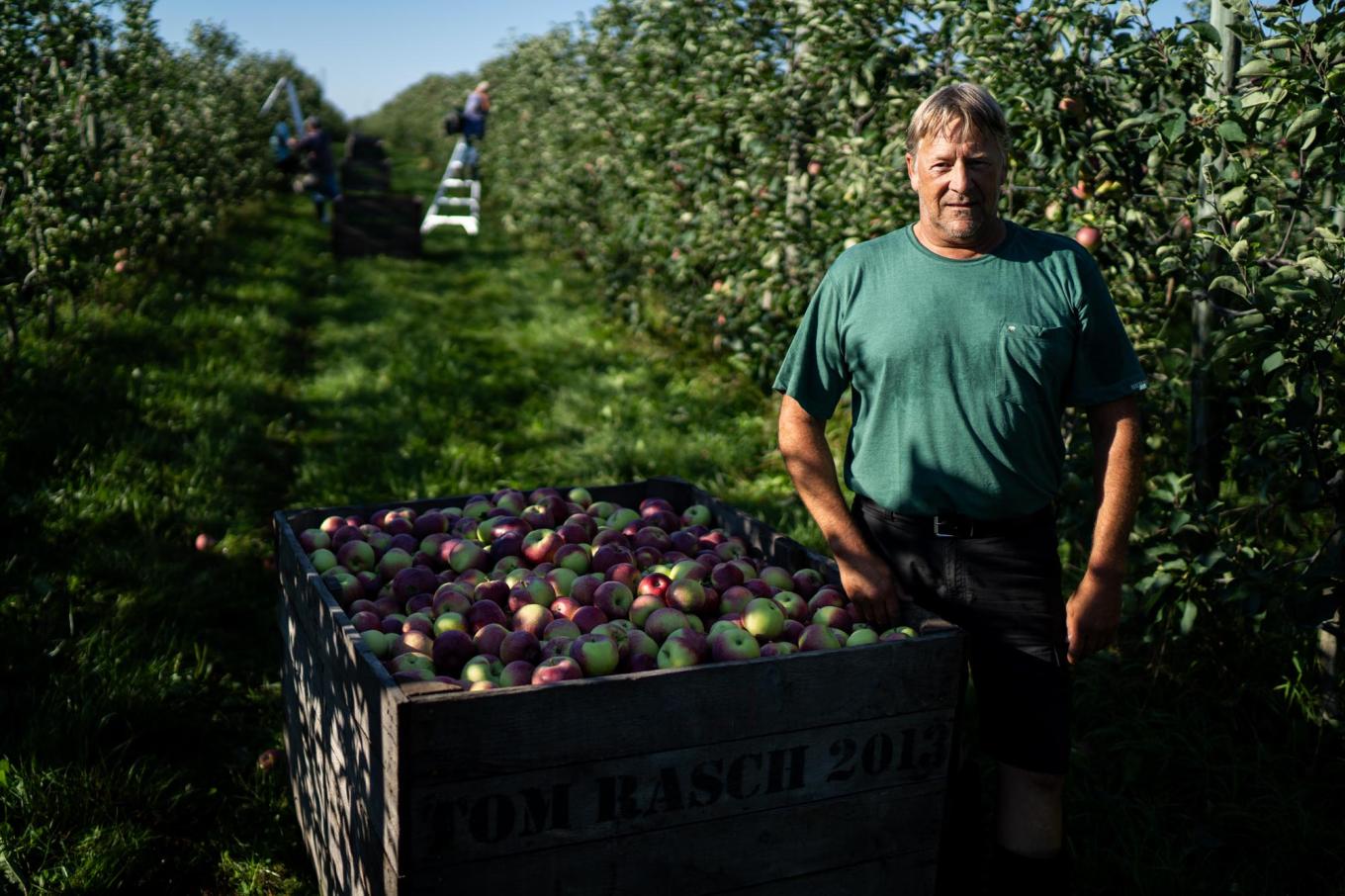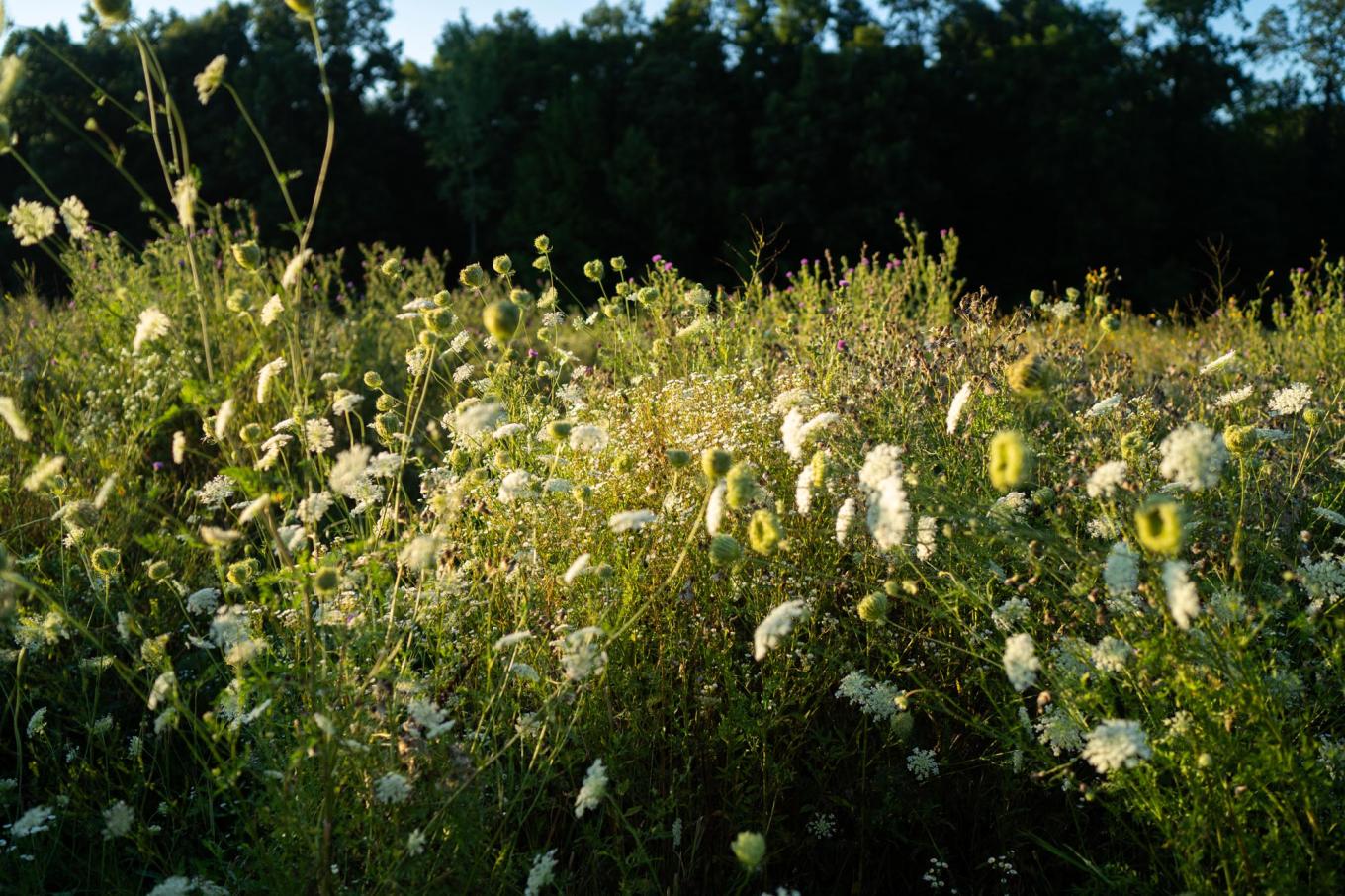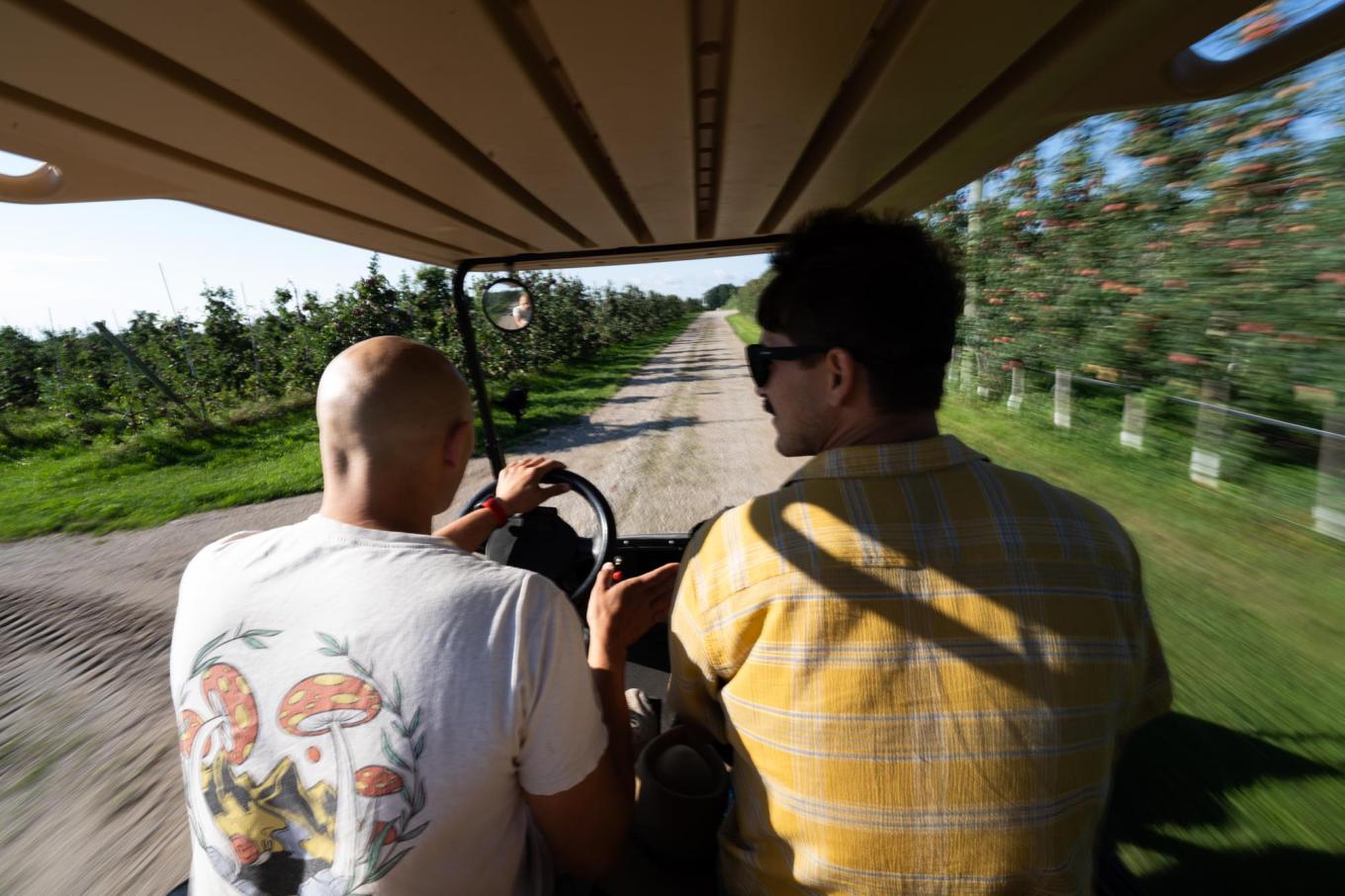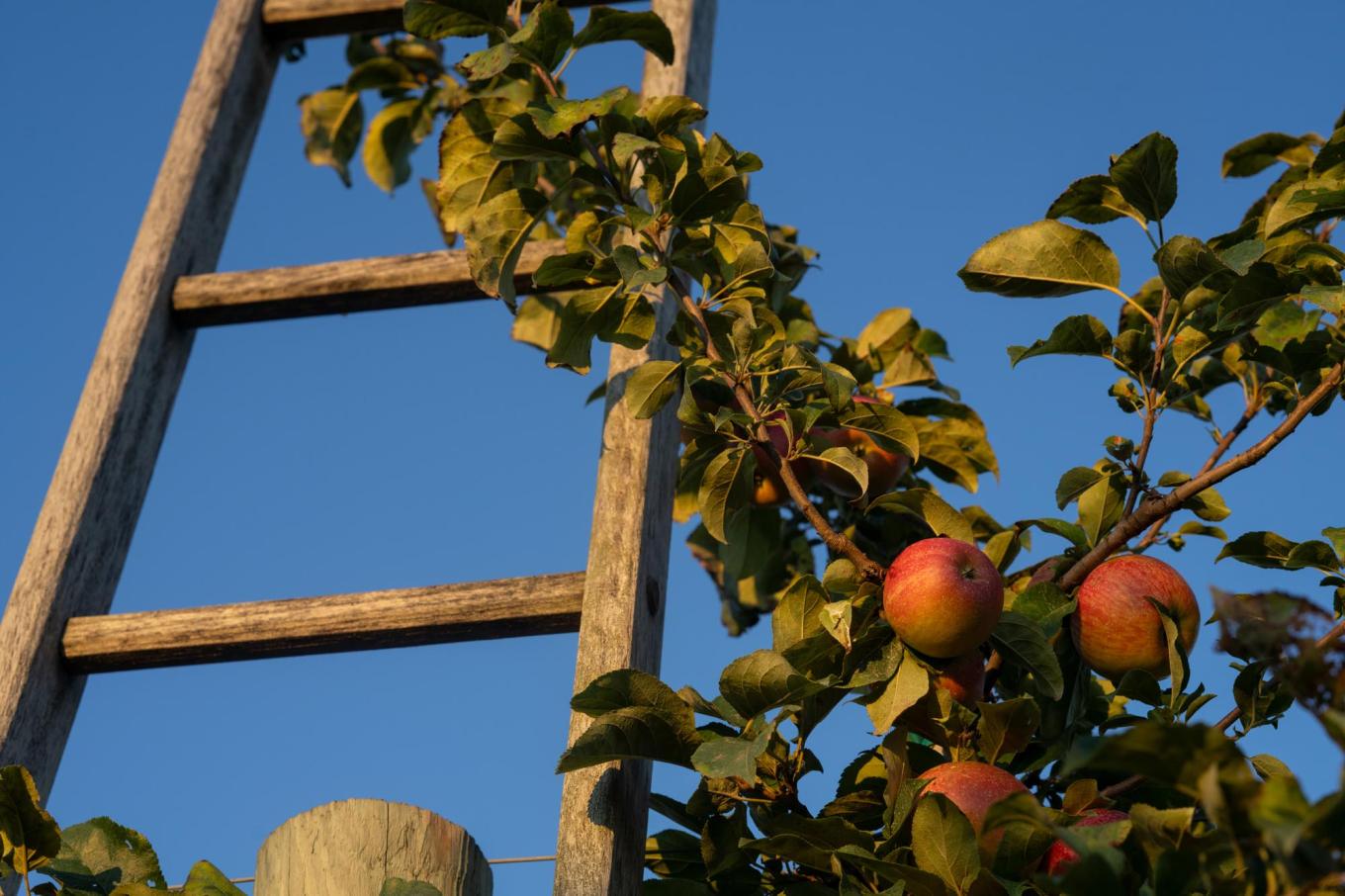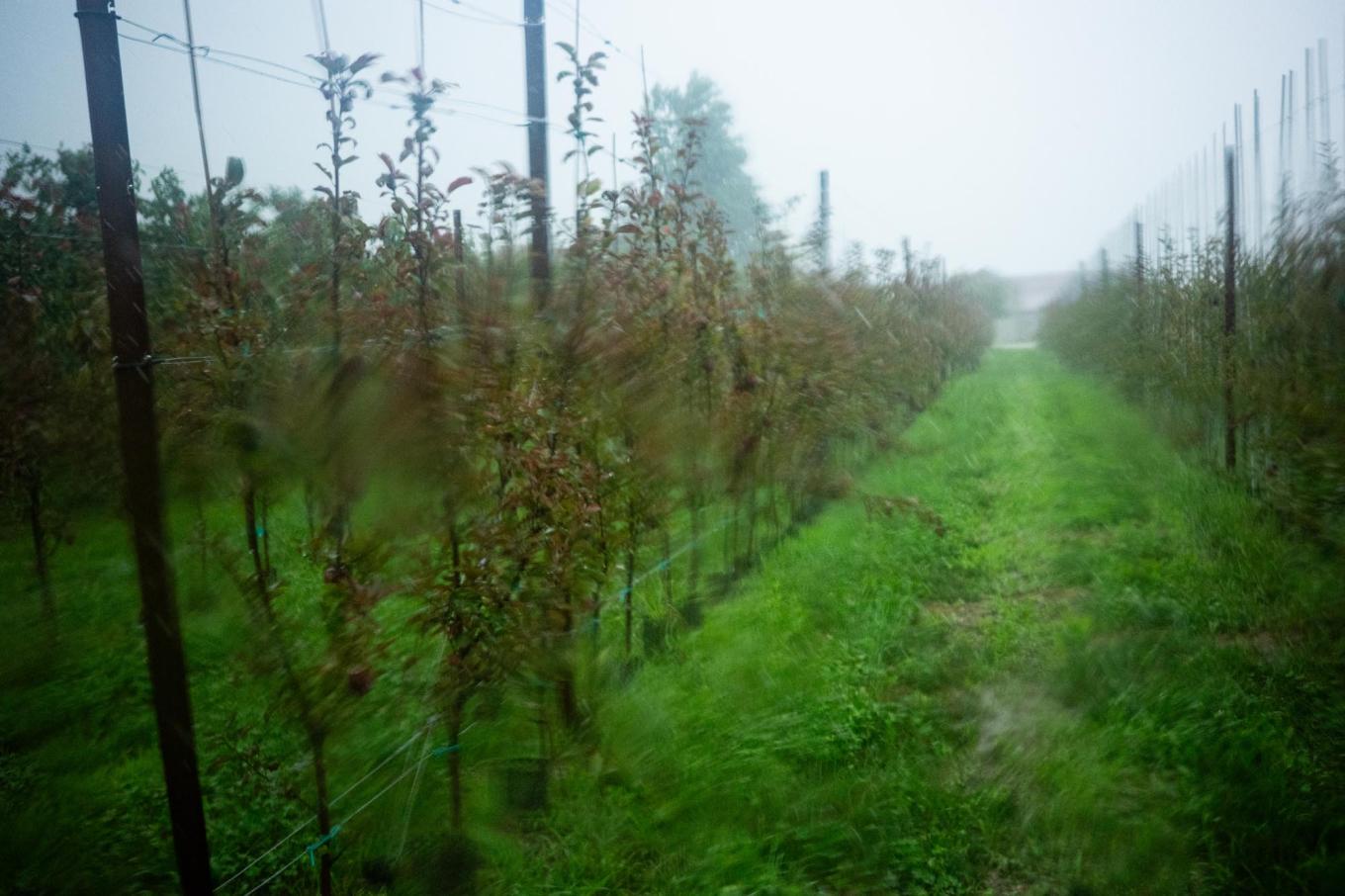
Kyle Rasch
Third Leaf Farm
Kyle Rasch, the owner of Third Leaf Farm in Greenville, Michigan, is a third-generation apple farmer continuing his family’s legacy, which began over 60 years ago with Tom Rasch and Son Orchards. With a primary focus on apples, the farm also grows peaches, cherries, and other fruits. Over time, the farm has shifted from conventional farming practices to more organic and regenerative methods. Their approach incorporates biodiversity through wildflowers, cover crops, and natural ecosystems, including bee colonies managed by Kyle’s brother, Eric.
EQIP
Michigan
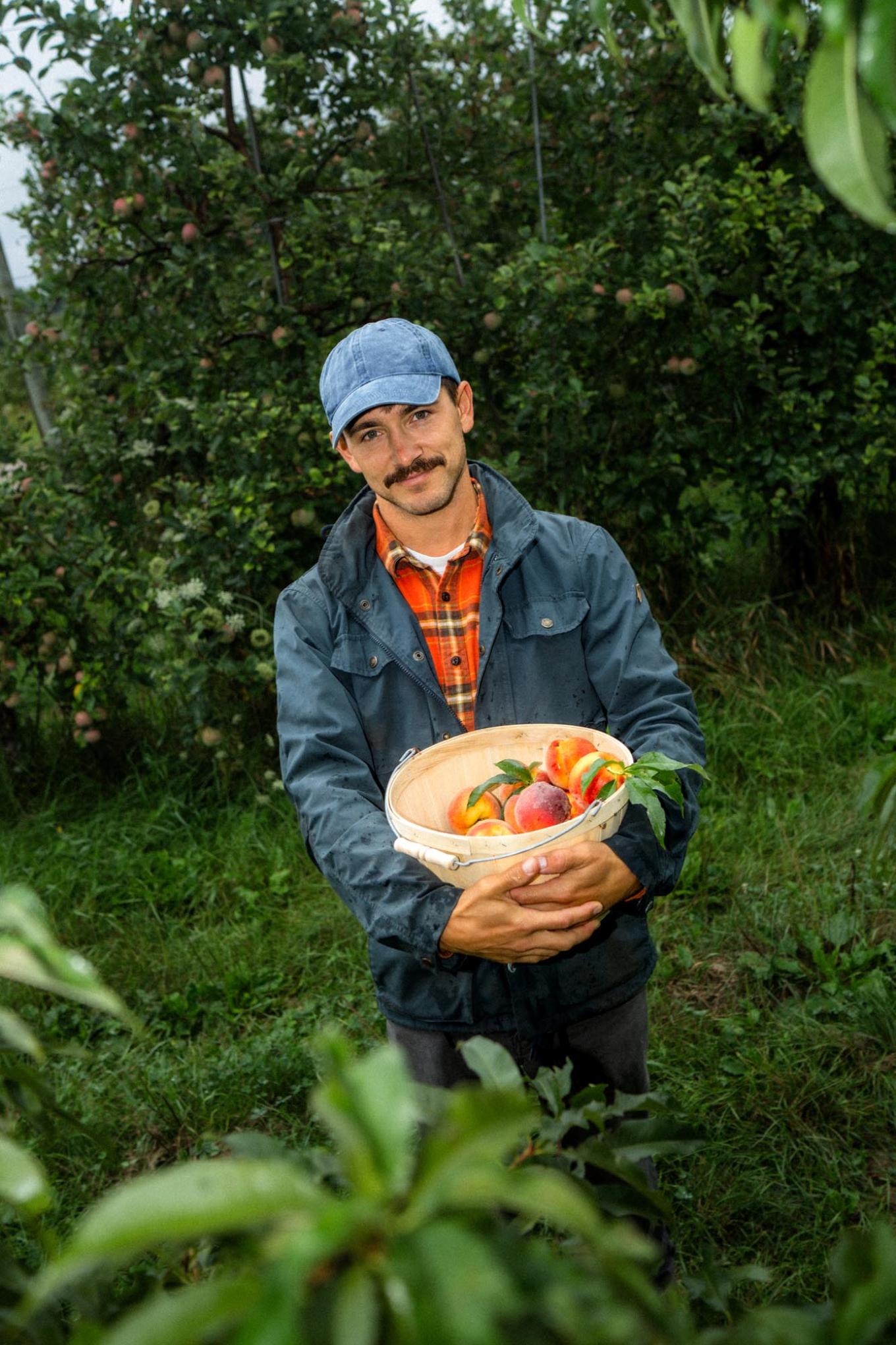
The transition from Tom Rasch and Son Orchards to Third Leaf Farm represents the family’s changing values and commitment to sustainability. The name “Third Leaf” symbolizes both the farm’s third generation of ownership and the three brothers originally involved in running the farm. By scaling back apple production from 180 to 110 acres, the farm has diversified its ecosystem and is gradually transitioning parts of the land to organic and regenerative farming integrating traditional orchard techniques with modern ecological practices.
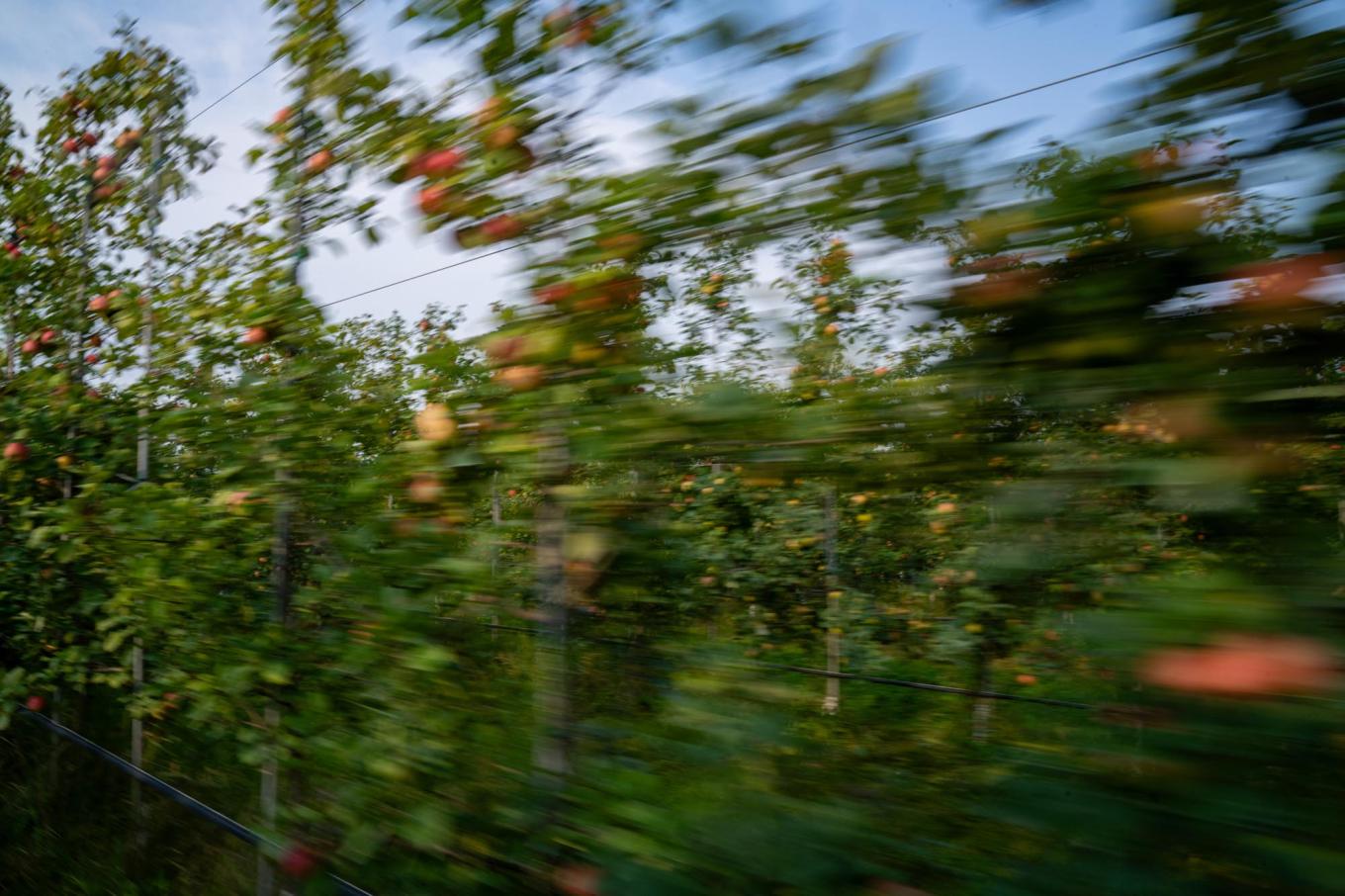
In the past 10 years there have been seven once-in-500-year events. It just keeps getting more and more extreme here. We’ve already moved one USDA growing zone warmer.
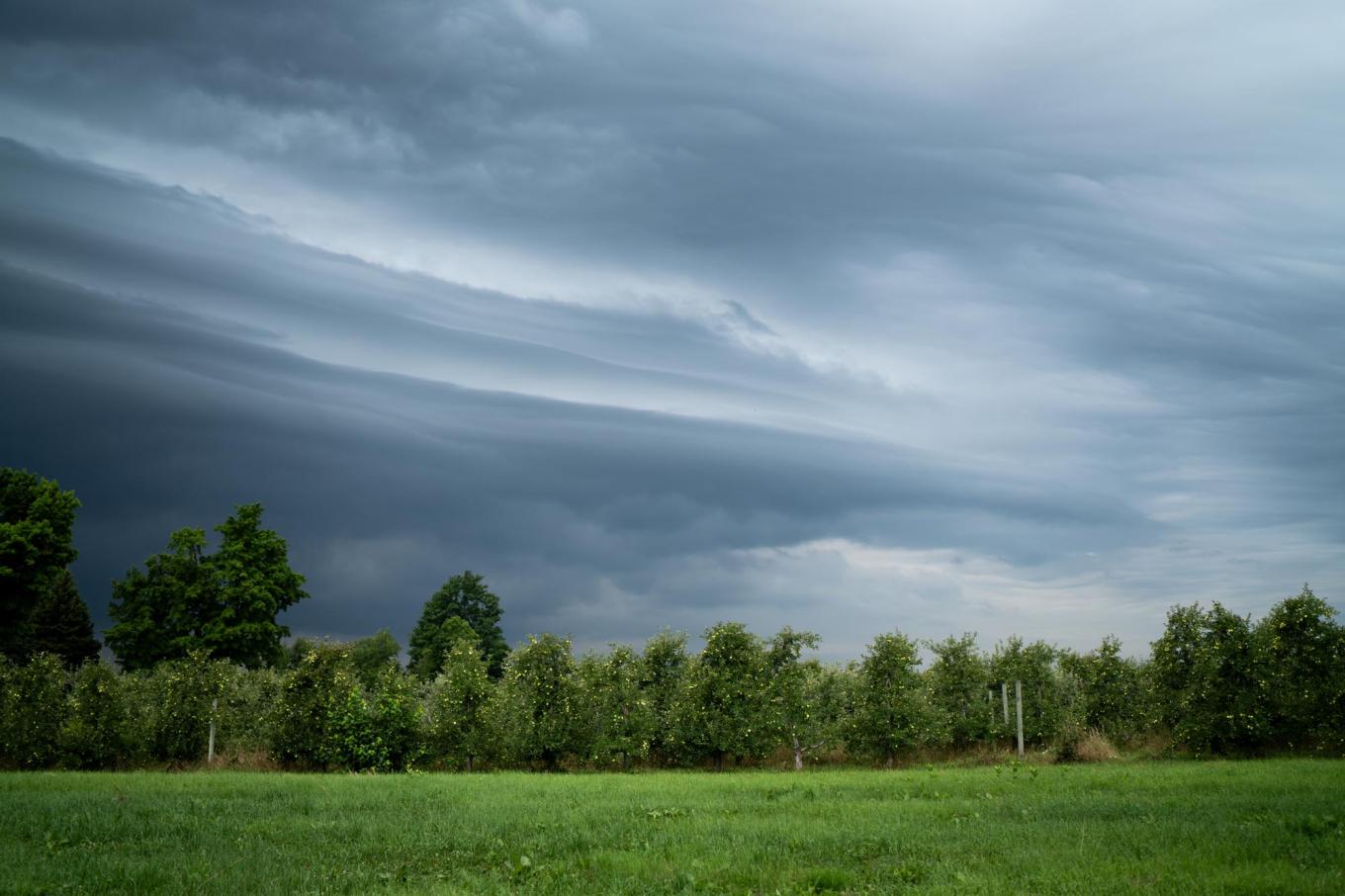
Kyle’s personal journey to organic farming was shaped by his travels and learning experiences through programs like WWOOFing, which allowed him to work on farms worldwide. His exposure to organic and regenerative methods led him to take a leadership role on his family’s farm, working closely with his father, who is slowly retiring. Together, they are focusing on transitioning the farm to be fully Regenerative Organic certified, while refining their methods to improve soil health and biodiversity. Through an Environmental Quality Incentives Program (EQIP) grant, five acres of pollinator habitat was planted in between orchard blocks, creating a more diverse list of species to pollinate the orchard crops as well as supporting nesting for birds and small animals.
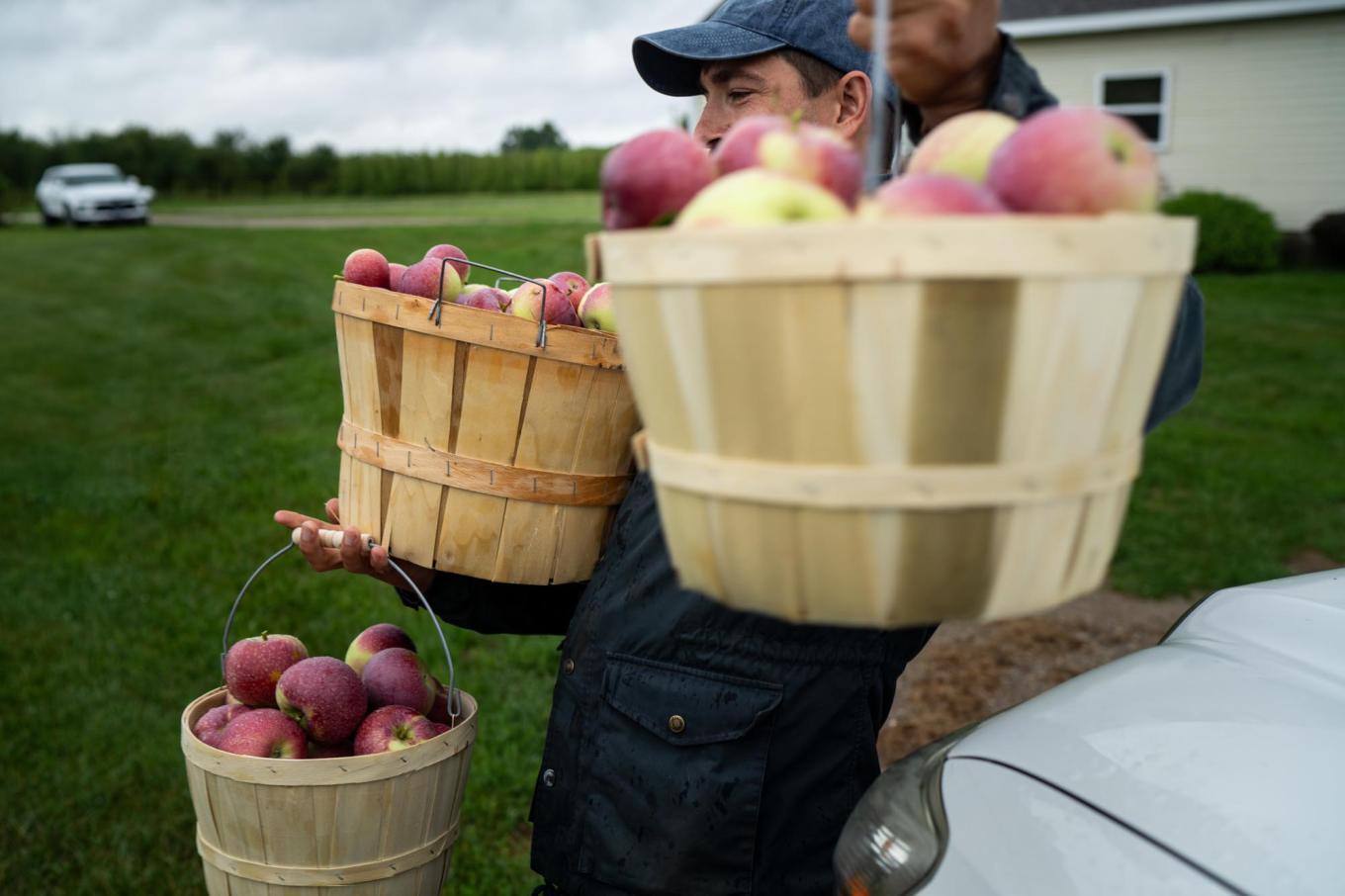
There were a lot of uneasy steps going into transitioning the farm to organic and pretty much every year there was a new set of challenges. But about three years into that process there started to be a lot more successes happening.
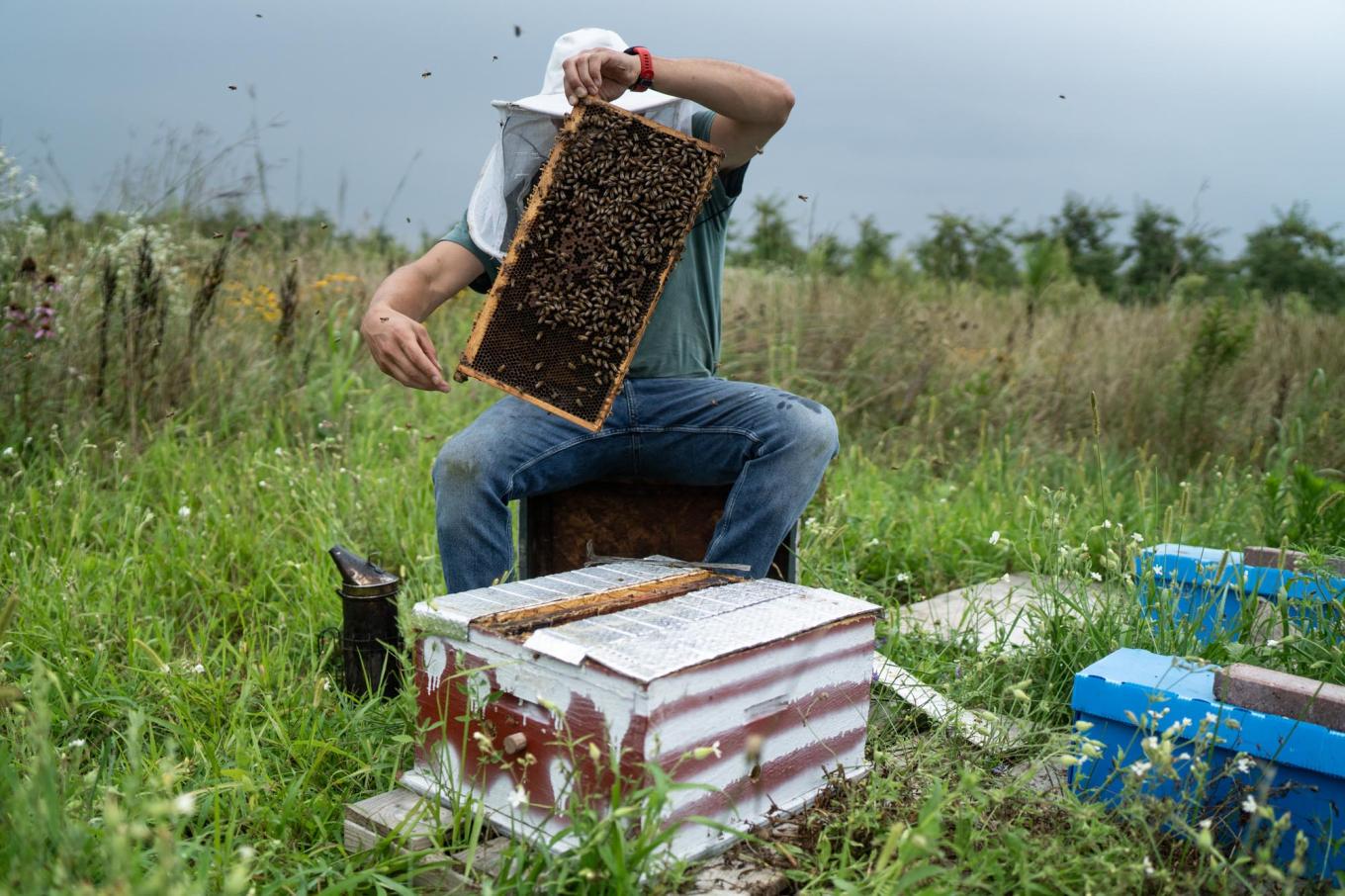
The shift to regenerative agriculture began with a fundamental change in mindset—from a chemical-dependent system to a holistic, ecosystem-focused approach. With the help of regenerative consultants, they transitioned from relying on chemical fertilizers to fostering soil health and biological balance. This shift led to improved fruit quality, larger yields, and better resilience against environmental challenges, like climate volatility. As a result, the farm has seen both ecological and financial benefits, demonstrating that regenerative practices can be more profitable than conventional methods while promoting long-term sustainability.
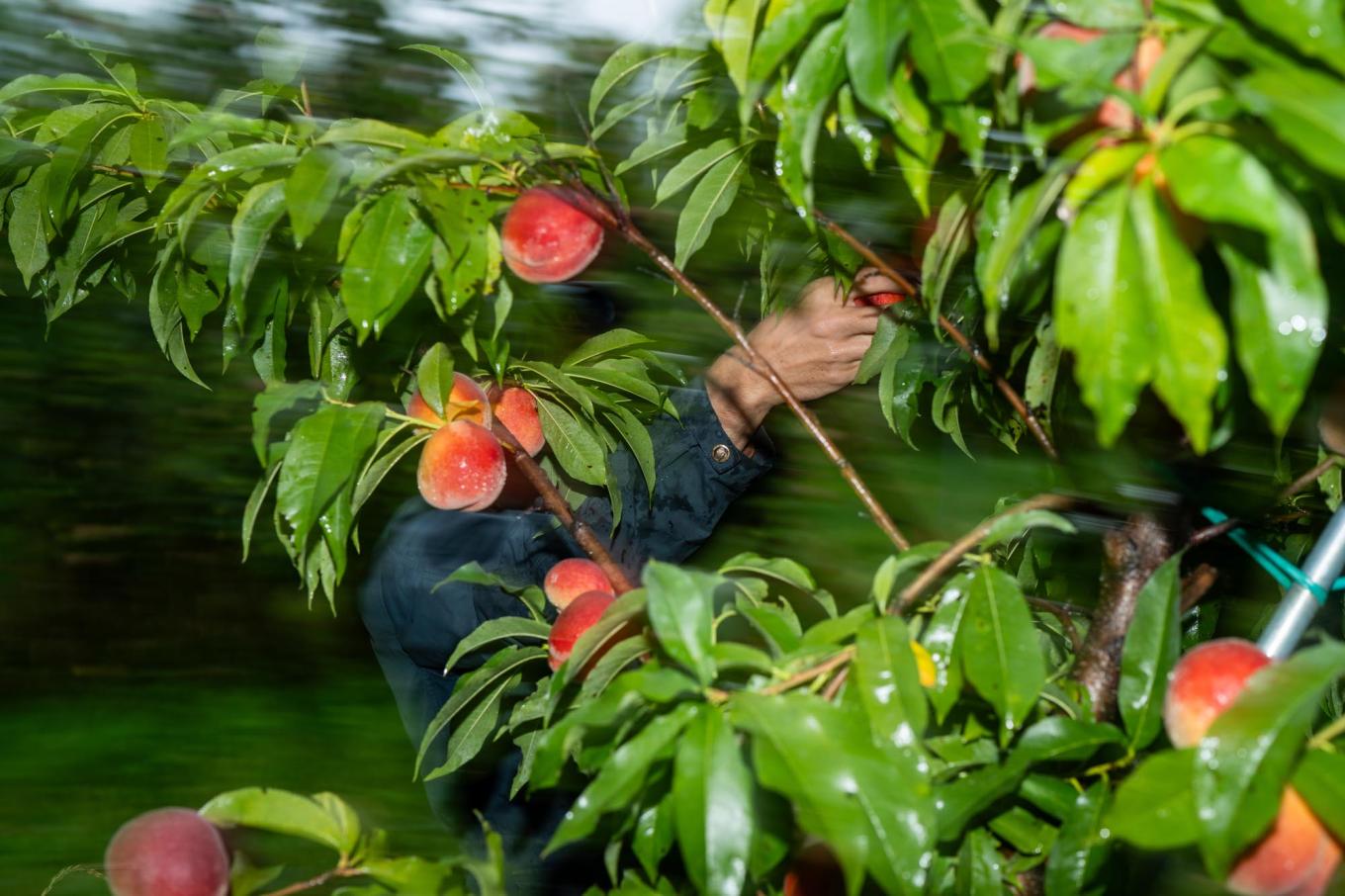
Seeing the biology, smelling the dirt, tasting the fruit - all these things started to click for my dad. But when we started to see some financial benefits, that was the biggest shift.
